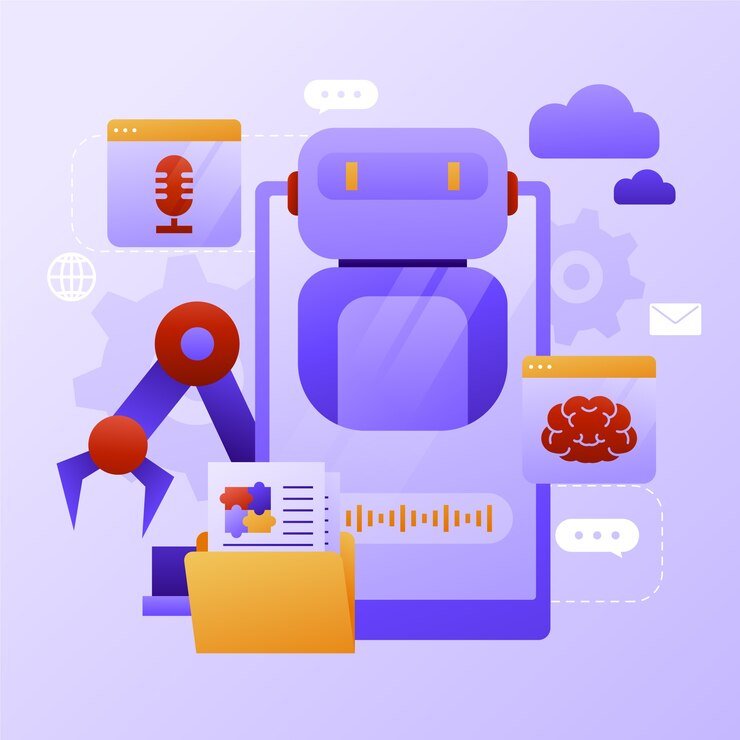Introduction to Agile Methodology
Agile methodology is a project management approach primarily used in software development that prioritizes flexibility, collaboration, and customer satisfaction. Originating from the Agile Manifesto, which was introduced in 2001, Agile emphasizes iterative progress through small increments, allowing teams to adapt to changing requirements and deliver value more effectively. The framework is built on four fundamental values and twelve principles, which guide teams in their quest for improved processes and product quality.
The core values of the Agile Manifesto are: individuals and interactions over processes and tools; working software over comprehensive documentation; customer collaboration over contract negotiation; and responding to change over following a plan. These values shift the focus from rigid procedures to a more responsive and interactive approach. Agile projects promote regular feedback, allowing teams to adjust their strategies promptly to meet user needs and project goals.
Agile sprints, short and time-boxed iterations, play a significant role in this methodology. These sprints enable teams to break down their workload into manageable segments, allowing for continuous evaluation and improvement. By leveraging principles such as adaptive planning and iterative development, Agile management promotes collaboration among team members and stakeholders, ensuring everyone remains aligned throughout the project lifecycle.
The adoption of Agile practices has transcended the software industry, with various sectors recognizing the benefits of flexibility and responsiveness. Organizations are increasingly integrating AI into their Agile sprints to enhance decision-making, streamline processes, and gain insights from data analytics. This convergence marks a significant evolution in project management, where technological advancements blend seamlessly with Agile methodologies to foster innovation and expedite project delivery.
Understanding AI in Context
Artificial intelligence (AI) refers to the simulation of human intelligence processes by machines, particularly computer systems. These processes encompass learning, reasoning, and self-correction, enabling machines to execute tasks that typically require human intellect. In today’s technology-driven environment, AI has emerged as a critical component that can significantly enhance various business operations, including agile management frameworks.
AI encompasses several subfields, notably machine learning (ML) and natural language processing (NLP). Machine learning involves developing algorithms that allow machines to improve their performance on a task with experience, identifying patterns within data without human intervention. This capability can be instrumental during AI sprints, as it enables teams to analyze extensive datasets in a compressed timeframe, ultimately leading to more informed decision-making. Similarly, natural language processing allows machines to understand, interpret, and generate human language, fostering enhanced communication and interaction within agile teams.
The integration of AI technologies into agile methodologies offers a range of advantages, supporting teams in optimizing their workflows and increasing productivity. For instance, AI-powered tools can facilitate real-time data analysis, providing insights that guide sprint planning and execution. Additionally, AI can assist in forecasting project timelines and resource allocation by analyzing historical data and current trends, allowing teams to adapt their strategies proactively.
By leveraging AI subfields like machine learning and natural language processing within the agile management framework, organizations can enhance their ability to respond swiftly to changing requirements while maintaining high quality in their deliverables. This alignment not only aligns with the principles of iterative progress found in agile practices but also encourages innovation and efficiency, ensuring teams remain competitive in a rapidly evolving market.
Complementary Nature of Agile and AI
The synergy between Agile methodology and artificial intelligence (AI) can significantly enhance project execution and outcomes. Agile management focuses on adaptability, continuous improvement, and customer feedback, which are essential in today’s fast-paced business environment. By integrating AI into Agile sprints, teams can leverage advanced analytics and machine learning to streamline processes and improve decision-making capabilities.
Implementing AI tools within Agile frameworks allows for data-driven insights that can guide teams through their sprints. For instance, predictive analytics can forecast project timelines and deliverables based on historical data, enabling teams to allocate resources more efficiently and address potential pitfalls proactively. This integration results in heightened project efficiency, as teams can focus on tasks that yield the most value, rather than getting bogged down by routine administrative work.
Furthermore, AI can enhance collaboration within Agile teams by providing real-time feedback and support. Tools powered by AI can automate mundane tasks, such as updating project statuses or writing reports, giving team members more time to concentrate on innovation and problem-solving. Moreover, AI systems can learn from each sprint, continuously improving their recommendations and predictions, thus further enhancing the Agile process over time.
Additionally, the fusion of AI and Agile practices fosters an environment of higher responsiveness to changing market conditions. For businesses striving to remain competitive, this flexibility is vital. Organizations that adopt AI in their Agile sprints are not just improving their operational efficiency; they are also positioning themselves to better meet customer demands and adapt to emerging trends. The complementary nature of AI and Agile methodologies creates a robust framework for organizations looking to thrive in an increasingly complex landscape.
AI Tools & Technologies for Agile Sprints
Integrating AI into Agile sprints can significantly enhance project efficiency and team collaboration. Various AI tools and technologies have emerged, enabling Agile teams to optimize their workflows and improve decision-making processes. One prominent category of such tools is predictive analytics. Predictive analytics often leverages machine learning algorithms to analyze historical data, thus forecasting potential project outcomes. For instance, tools like Tableau and Microsoft Power BI utilize predictive capabilities to help teams assess risks and allocate resources effectively, leading to better sprint planning.
Another critical aspect of AI integration in Agile management is automating testing processes. Tools such as Selenium and Test.ai are designed to streamline quality assurance by enabling automated testing of applications. This reduces the manual effort required from QA teams and ensures faster feedback loops, allowing for more rapid adjustments during sprints. Furthermore, these testing solutions can adapt over time, thus improving accuracy and efficiency as new features are introduced.
Real-time project monitoring tools have also become essential for Agile teams. Platforms like Jira and Monday.com leverage AI to provide insights into project health and team productivity. By analyzing work patterns and bottlenecks, these tools facilitate actionable insights that can guide Agile practitioners in making informed decisions. This real-time feedback enhances transparency, enabling teams to respond quickly to changes and maintain alignment with their sprint goals.
In conclusion, the incorporation of AI tools such as predictive analytics, automated testing solutions, and real-time monitoring can substantially empower Agile teams. These technologies facilitate enhanced collaboration, more effective resource management, and better outcomes throughout the Agile sprint lifecycle.
Challenges of Integrating AI into Agile Practices
Integrating artificial intelligence into agile management frameworks can be a complex endeavor, often fraught with several challenges. One significant hurdle is cultural resistance within organizations. Teams that have operated traditionally may be hesitant to embrace AI technologies, fearing job displacement or the shift in established working methods. This resistance to change can lead to friction, making it difficult for management to implement AI sprints effectively.
Another critical challenge lies in the technical issues that can arise during this integration. Many organizations may lack the necessary infrastructure or data quality to support AI initiatives. Poorly structured data can lead to ineffective AI models, resulting in outcomes that do not align with agile development goals. Furthermore, the lack of interoperability between existing systems and new AI tools can create bottlenecks, obstructing the smooth functioning of agile processes.
Misalignment with agile values is also a pivotal concern. Agile methodologies emphasize collaboration, flexibility, and customer feedback, but AI tools can sometimes promote a top-down approach that conflicts with these principles. This discrepancy can undermine team dynamics and lead to a disconnect between AI functionality and the principles of agile management. Moreover, there is a pressing need for training and upskilling team members to handle AI solutions effectively. If teams are not equipped with the necessary skills to leverage AI efficiently, the potential benefits may go untapped, resulting in wasted resources and missed opportunities.
Addressing these challenges requires a strategic approach that encompasses change management, technical skills development, and a reaffirmation of agile principles. By recognizing and proactively managing these obstacles, organizations can create an environment conducive to successful AI integration in their agile sprints.
Case Studies: Success Stories of AI in Agile Frameworks
The integration of artificial intelligence into Agile management has paved the way for numerous success stories across various sectors. One notable case involves a global financial services firm that sought to enhance its product development cycle. By adopting AI sprints within their Agile framework, the organization implemented machine learning algorithms to analyze customer feedback in real-time. This innovative strategy not only accelerated their decision-making process but also significantly improved product quality, resulting in a 30% increase in customer satisfaction scores.
Another exemplary case can be found in the healthcare industry, where a leading medical technology company utilized AI to streamline its research and development processes. Through Sprint reviews, AI tools were employed to predict potential outcomes of clinical trials. This approach enabled the team to focus on the most promising initiatives while minimizing time and resources on less viable options. The company reported a 40% reduction in the time taken to bring new products to market, showcasing how AI-driven insights can effectively complement Agile management practices.
A third case illustrates the impact of AI in a manufacturing context. A well-known automotive manufacturer integrated AI-powered analytics into their Agile teams, enhancing supply chain efficiency. By leveraging predictive analytics, the organization could proactively identify potential bottlenecks in production that might affect delivery timelines. This capability not only led to a marked improvement in operational efficiency but also fostered better teamwork through informed Sprint planning and prioritization. The results demonstrated how the successful application of AI sprints can bolster Agile principles, ultimately leading to a more responsive and adaptive organization.
These case studies underline the transformative potential of integrating artificial intelligence into Agile frameworks. The strategies employed, outcomes achieved, and lessons gleaned provide valuable insights for organizations aspiring to enhance their operational efficacy through AI in their sprints.
Best Practices for Integrating AI into Agile Sprints
The integration of artificial intelligence (AI) into Agile sprints can significantly enhance the efficiency and effectiveness of project management. By adopting a few best practices, teams can ensure that the inclusion of AI tools aligns seamlessly with Agile methodologies.
First and foremost, iterative testing is crucial when incorporating AI functionalities into Agile workflows. Regularly assessing the performance of AI systems helps teams identify areas for improvement, allowing them to refine their algorithms and models based on real-time feedback. This iterative approach fosters adaptability, a core principle of Agile management, and ensures that the AI tools used are continuously optimized for the project’s specific needs.
Another essential practice is fostering cross-functional collaboration. AI implementation often requires insights and expertise from various domains, including data science, software development, and product management. When team members with diverse skills work together, they can better understand how AI can address specific challenges within their Agile sprints. This collaboration enriches the team’s collective knowledge and promotes innovative solutions that might not arise within siloed work environments.
Furthermore, establishing a continuous feedback loop is imperative. Regular feedback sessions during sprints allow teams to discuss the performance of AI-driven tools and their impact on project outcomes. Timely feedback helps in making informed decisions, ensuring that any adjustments needed can be swiftly incorporated into the project cycle. This process not only enhances the performance of AI systems but also aligns them with the Agile principle of responding to change rather than following a fixed plan.
Lastly, prioritizing team training on AI tools is vital for success. Equipping team members with the necessary knowledge to leverage AI technologies effectively can dramatically enhance the integration process, leading to more successful Agile sprints. Emphasizing these best practices will lead to more effective integration of AI, ultimately improving team productivity and project quality.
Future Trends: The Evolving Relationship Between AI and Agile
The relationship between artificial intelligence (AI) and agile management methodologies is poised for significant transformation as we progress into the future. As organizations increasingly seek to enhance efficiency and productivity, AI is expected to play a crucial role in optimizing agile sprints. Integrating AI capabilities into agile frameworks will likely lead to more adaptive and responsive project management practices.
One anticipated trend is the use of AI for predictive analytics. By analyzing historical project data, AI tools can forecast potential challenges and identify resource allocation issues before they materialize. This foresight can empower agile teams to make informed decisions during sprints, enabling them to pivot strategies effectively and maintain project momentum. Furthermore, such predictive insights align with the core principles of agile management, which emphasize flexibility and responsiveness.
Another innovation on the horizon includes the automation of routine tasks through AI. With the advent of natural language processing and machine learning, AI can streamline processes such as documentation and status reporting. This automation can free up team members to focus on more strategic elements of their work, promoting creativity and collaboration within agile teams. As a result, sprints could become more productive and effective, resulting in faster delivery cycles.
Moreover, AI-driven tools may facilitate enhanced communication and collaboration among team members. By analyzing team interactions and project workflows, AI can provide actionable insights to improve team dynamics and overall performance. This aspect of integration could lead to a more harmonious working environment, fostering a culture of continuous improvement that is fundamental to agile methodologies.
In conclusion, as we explore the relationship between AI and agile management, it is evident that this integration could radically enhance project management practices. By harnessing the capabilities of AI within agile sprints, organizations can look forward to a more efficient and innovative approach to project execution in the years ahead.
Conclusion: The Path Forward
As we navigate the evolving landscape of software development, it becomes increasingly clear that the integration of artificial intelligence into Agile management practices, particularly during ai sprints, holds substantial promise. The intersection of AI and Agile methodologies not only enhances the efficiency of development processes but also fosters a more responsive approach to project requirements. Through the automation of routine tasks and the provision of data-driven insights, teams can focus their energies on high-value activities, ultimately driving greater innovation and responsiveness to market changes.
The benefits of incorporating AI tools within Agile frameworks are multifaceted. These technologies can streamline workflows, optimize resource allocation, and improve decision-making. By analyzing vast amounts of data, AI can provide predictive analytics that help Agile teams identify potential bottlenecks and make informed adjustments during sprints. Furthermore, the ability to adapt plans based on real-time data ensures that project outcomes align more closely with customer needs and expectations.
In the context of agile management, the evolution toward AI-enabled sprints represents a transformative shift. It encourages teams to embrace a culture of continuous improvement while leveraging intelligent tools to enhance their capabilities. As organizations begin to invest in these technologies, it is essential for them to foster a learning environment, promote collaboration, and remain adaptable to change. By doing so, they position themselves not only to enhance productivity but also to create a more dynamic ecosystem that can respond to challenges effectively.
In conclusion, embracing AI technologies within Agile methodologies is not merely a trend—it’s a strategic move towards greater efficiency and adaptability. Organizations that leverage AI within their sprints will likely find themselves at a competitive advantage, equipped to meet the demands of today’s fast-paced development environments. With careful implementation and a commitment to ongoing learning, the future of Agile management looks promising.



